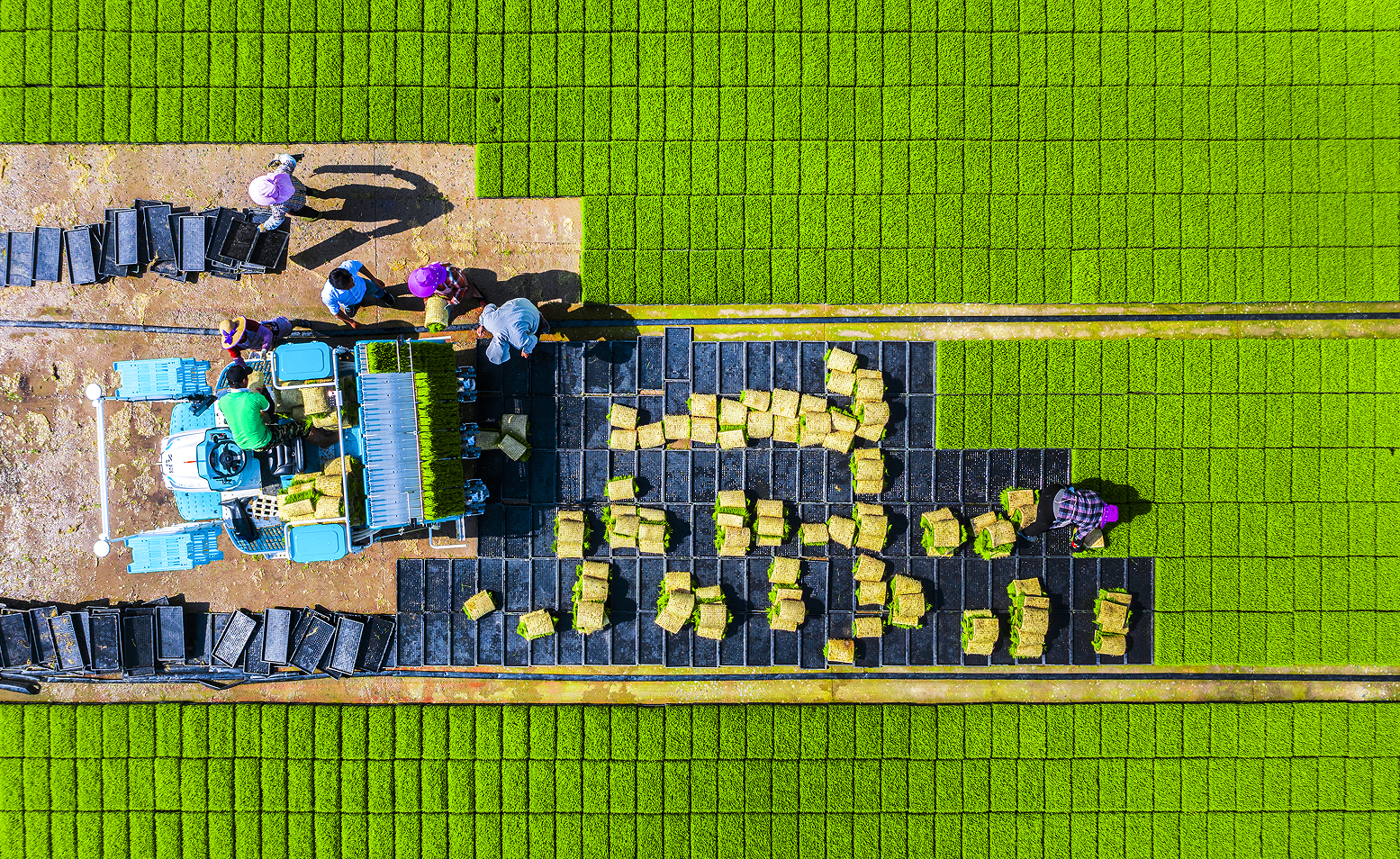
Intelligent?rice?transplanter?facilitated?the?BDS?shuttling?back?and?forth?in?east?China's?Jiangsu?province.?(PHOTO:VCG)
By Staff Reporters
China's BeiDou Navigation Satellite System (BDS) has been consistently reliable since the introduction of BDS-1.
More than 7.9 million commercial road vehicles, 40,000 vehicles on Express Mail Service lines and 47,000 ships in China have used BDS. Nearly 8,000 BDS terminals of different types have also been promoted and adopted in the railway system.
In addition, there are now in excess of 100,000 farm machines fitted with BDS autonomous driving systems, covering various aspects of agricultural production, including deep ploughing, rice transplanting, sowing, plant protection, harvesting, straw treatment and drying.
Unique to BDS, the short message communication (SMC) service provided by the system can be accessed via smart phones. SMC has also been applied to conduct hydrological monitoring in 2,587 reservoirs.
Cyclists have also benefited from high-precision BDS positioning chips, with over five million shared bikes equipped with the system in more than 450 cities all over the country. Eight cities have successfully conducted pilot projects of high-precision navigation at lane level based on BDS, and the navigation is gradually being rolled out nationwide. BDS has also become the main navigation system on domestic navigation map, and the daily positioning of BDS on the map exceeded 300 billion times.
Since 2020, BDS-3 began offering a service with powerful functions globally. Cooperation with other countries in satellite navigation also flourished.
China has also signed memoranda of understanding on cooperation in satellite navigation with the Arab Civil Aviation Organization and the United Arab Emirates. A statement on cooperation between BDS and Russia's satellite navigation system GLONASS was also issued.
According to the China Satellite Navigation Office, by 2035, China will establish a comprehensive national space-time system with the next generation BDS system as the core, providing unified, seamless coverage, safe, convenient and efficient positioning, navigation and timing services.
The trio will conduct a series of experiments in fields such as life science, fluid physics, combustion science and materials science. Notably, this is the first time that fruit flies have been taken on a Chinese space mission as experimental subjects. What made scientists choose fruit flies? What experiment will they undergo?
